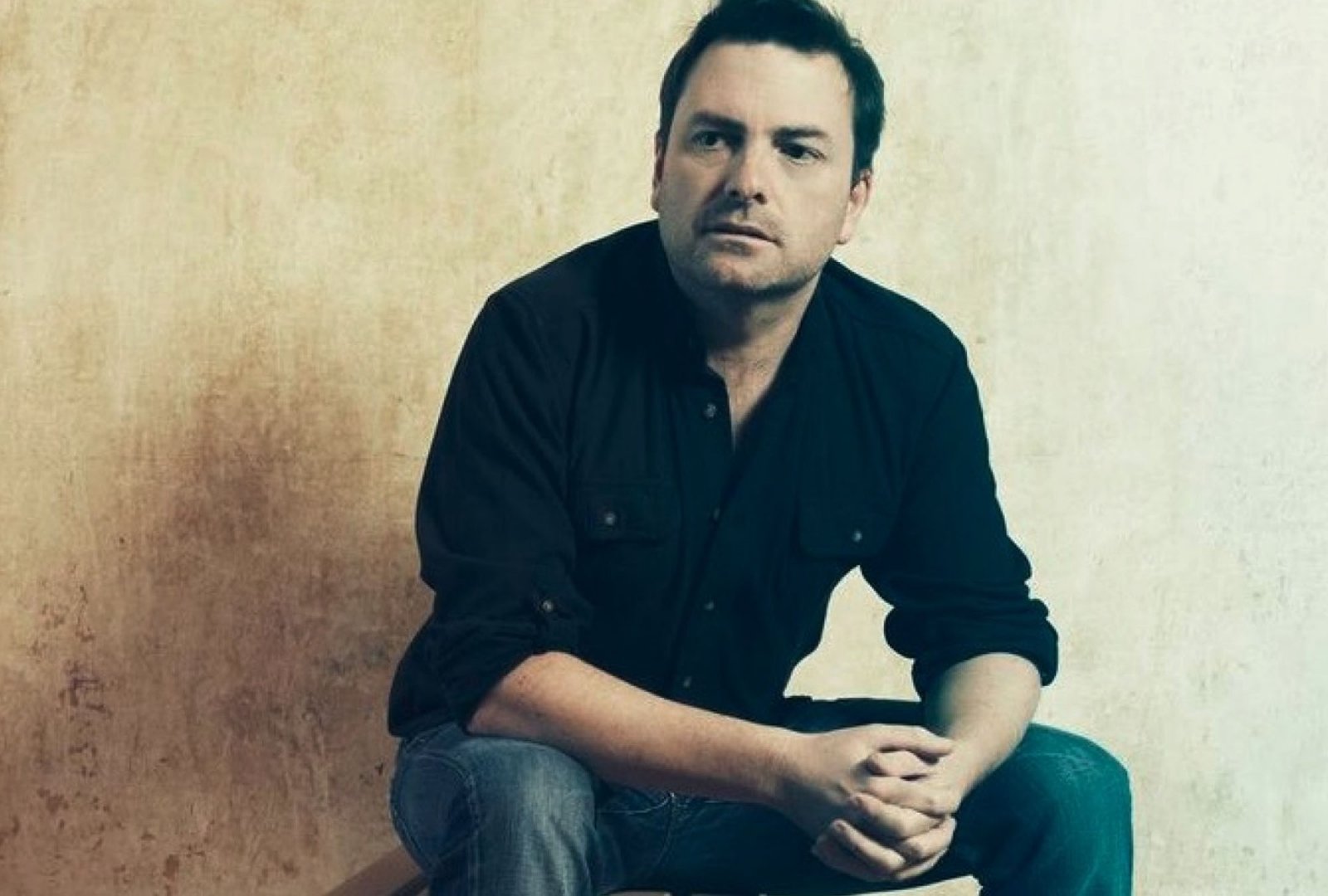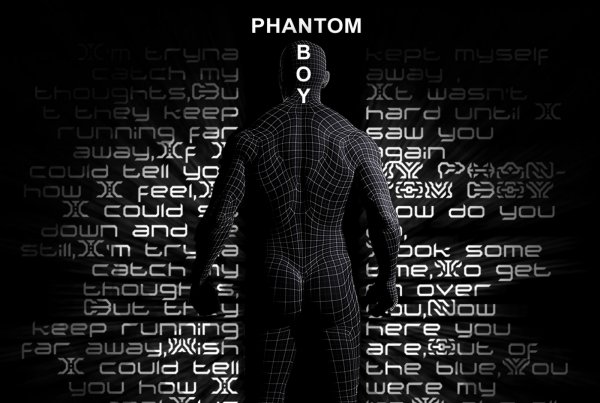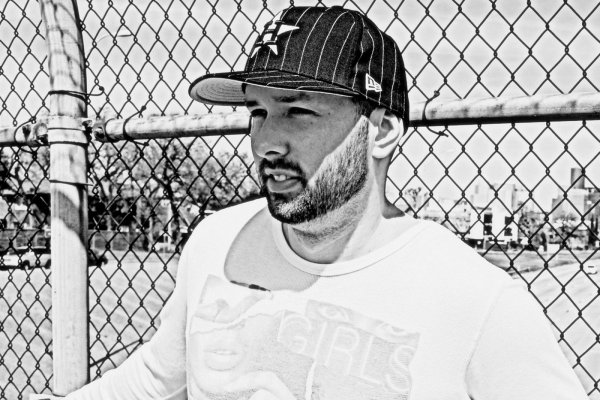It Started With A Synthesizer: The Musical Chronicles Of Ivan Gough
Melbourne DJ, producer and genre chameleon Ivan Gough has been a linchpin of Australian electronic dance music since the early years of its inception. Over the last three decades, he’s played his hand at almost every different offshoot as a defining figure, shapeshifting through the scene under a beguiling catalogue of aliases. He’s won Arias, remixed club bangers and set foundations for Melbourne’s electronic imagination as far back as the days where you had to wait for your imports to be delivered to the record store on a Tuesday. Regardless of your taste in music, his story is sure to resonate with anyone who has a passion for the art of production, experimentation and self-reinvention.

Gough’s musical journey began in the 80s savouring every synth sound his ears could find in any guise, in a world where music exposure was governed by what was broadcast on the radio and where most people’s obsession was Australian rock. ‘I was always more interested in synthesiser music,’ he says. ‘I gravitated to European and in particular British electronic bands. My influences stemmed from whatever Joy Division, New Order and Depeche Mode I could get my hands on. That music just had something about it. I remember being in a Brash’s music shop in about 1983 and having my mind completely blown by a guy doing a synthesiser demo. It was like nothing I had heard before. It was the beginning of an obsession. I went home and couldn’t sleep – all I could think about was that noise and how I could get my hands on a synth of my own.’
Soon Ivan started collecting synths and drum machines and joined forces with the likeminded kids from his school who weren’t afraid to dance to a different drum. He bonded with a few guys who had a microphone, some guitars and a different perspective and started jamming out ideas. But the real lightbulb moments began to ping in the late ‘80s when he started getting dragged out to clubs and heard his first house records.
Ivan would spend many an unsociable hour hunkered over modest speakers waiting for the latest serving of imported UK house music on Triple R, seminal tracks like Farley Jackmaster’s ‘Love can’t turn around’ and MAARS’ ‘Pump up the volume’ that laid the foundations for everything we know today.
‘For me, the record that turned everything on its head and made me realise that anything was possible was Little Louis’ ‘French Kiss,’ recounts Gough with starry eyes. ‘It changed the way that everyone thought about music. Even the emerging breed of house music prior to that time had a linear composition. It was always verse and chorus up to that point. But the subversive arrangement of that record really got inside your head. It was the first record I heard that really broke the mould. It took you to a place you didn’t know you had inside yourself and drove you gloriously insane with just five or six sounds in mesmerising repetition.’ I immediately thought “I can do this”!!
In those days, Gough had a blank canvas to throw paint on and the kind of appetite that comes with youth and the feeling that you on the cusp of something huge, a wave just about to break onto an unknown shore. He was hanging out with those who were setting up the blueprint for a local scene, emerging local DJs who were already making their mark. He mentions John Course as a huge influence and mentor for his burgeoning career.

‘John started DJing when he was about 15 or so. By ’89, he was well established in the club scene, along with his partner in crime Andy Van. I used to follow them around religiously. John and Andy always had the latest records and it was the only chance we had to listen to them, not like you could go to Beatport back then. Back in those days they used to get their records in on a Tuesday. We would always hit Sanction at Chevron on a Tuesday night. That room was literally full of Melbourne’s future DJs all rubbernecking at what was being pulled out of the record bags to catch a glimpse of the latest import. It was a special time when everything was new.’
‘As our collections began to accumulate, we did everything we could to lay claim on the best imports. We’d put stickers on our records so nobody could work out what they were. We would follow some DJs around just because we knew they owned a record we wanted to hear.’
It wasn’t long before Gough’s musical ear and determination were recognised and his first forays into music production began. ‘Not long after that I met up with a guy who also had studio equipment. He had a record that was half done and asked me if I wanted to help him finish it collaboratively. I had a studio in my parents’ garage. After a bit of work, we finished it and got it to John Course. He took us to a studio in the city, where we mixed it down had some records cut.’
In the right place at the right time, big things began to happen. With the rule book unwritten, the stage was theirs to set. ‘We didn’t have the internet back then, so all we knew about what was going on in the UK we siphoned from copies of Mixmag. They used to have a weekly offshoot called Mixmag Updates, which was their weekly charts, and essentially our bible. In 1994, we put out the record out on Vicious Vinyl/Mushroom Records in Australia at the time they were trying to launch themselves in the UK – it was the Ivan Gough remix of trance-esque banger ‘I Need You’ by Pendulum. There was no real way of gauging how it had made its mark, until a friend in the UK posted me a live Paul Oakenfold mix on cassette. Oaky was pretty much the benchmark for everything we loved at the time. The surreal moment came when I heard the unthinkable. He played my track! The crowd had been mic-ed up and I could hear them going bananas to it. It felt like I was dreaming… this was Oakenfold – in the UK. It was like all my dreams had come true.
‘At the time, house music was really bubbling under here. Where the UK had a really prolific scene, it was still quite a mysterious entity in Australia. There were a lot of emerging DJs, producers and labels taking shape, but it was still very much a cottage industry at that time. We kept making records. We continued to establish relationships with a lot of the DJs that came over here for tours. When I met Oaky and Pete Tong, I was so proud that they knew my records – despite the geographical gap, the relationship had already been established in music.’
After that, things just went from strength to strength. Gough launched another record in ‘97 under the first of many aliases. Together with In Motion as The Traveller, Ivan’s ‘Believe’ skyrocketed on dancefloors globally. ‘John Course was going to the UK and gave it to Pete Tong’s guys at the BBC studios at 3pm on Friday afternoon. Later that day, he was driving up to Leeds for a night out listening to Tongy’s Radio show and thought, “this track sounds familiar…” Then he realised, shit this is Ivan’s record! He called me up right away: “ Ivan, Tongy just played your track! I gave it to him this afternoon and he already played it! He only had it for five hours!” Pete played Believe for the next five weeks in a row on the BBC and it all went nuts from there. I still think it was pretty freaky.’
On a roll, Gough set up a studio with the Zero Tolerance guys in ’99. He had been working closely with DMC Records’ Stewart Hanna and decided to set up a studio in the shop. For the next three years, they ran the Zero Tolerance label above the record shop honing a unique darkbeat that came to define the late night house music sound for that particular era, especially at nights like Sunny.
This was a very special time for Gough, epitomised in his tracks 2heavy under the name Deep Funk Project or Accelerator & Chaos Engine by The Traveller presents Quest (aka Luke Chable), tracks that have stood the test of time to still blow the roof off Sunny today.
‘There were a lot of good times,’ he remembers. ‘We had a lot of great records. We were working with guys like Andy Page [now working with Hans Zimmer] and Phil K and went on to make a good number of influential records for the era, crossing and cultivating genres. Putting feelers out into a sound that would evolve into progressive breaks, Phil and I put out a rework of Opus III’s Fine Day. It was a good time to be making the kind of records we did.’

But things were set to change. Illegal downloading began to redress the balance of the industry as they knew it. ‘Pressing vinyl isn’t cheap. It got to a time in the early 2000s where it wasn’t really financially viable to keep doing it. If you like proper prog, 1996 -2002 era was the golden era of that kind of music. But with the advent of new times, I found my tastes changing with the times – it was time for something new.’
‘I started going to a lot of house clubs, listening to music by Mylo and Tiga and taking away the influence of the new wave of accessible electro. By 2005 I was playing regularly at One Love and found my place in a completely different scene. I think that alongside Sunny, One Love club was one of the best nights Melbourne ever hosted. The vibe in the 2004-8 era was something else. It was always packed. To me, the backroom was better than the front. It was so danceable – the crowds were there to lose it to funky indie house records with an electro attitude. Again we felt ourselves on the cusp of something very special. The earliest record I did from this era was an electro house remix of a track with Grant Smilie.’ Pete Tong championed No Matter What as his Essential New tune on Radio 1 – it was clear that Gough was back with his finger firmly on the pulse again. And as you would expect there were bigger things to come.
‘Grant and I initially made a deep house record for our first TV Rock project. We decided we needed a vocal to take it to the next level. We met Seany B doing stuff around Melbourne and decided he was our guy. We tweaked the track to become more electro and made a record that pretty much changed the whole scene.’ Love it or hate it, Flaunt It went on to become the number 1 single in Australia for eight weeks and spent 39 weeks in the Australian ARIA Top 50. TV Rock won the highest selling single and best dance release for "Flaunt It" in the 2006 ARIA Music Awards of 2006 and set the precedent for a whole new mainstream genre.
But it wasn’t all about the glitz and glamour. ‘We had absolutely no budget for the video clip,’ laughs Gough. ‘I think we ran with a budget of about $200. We got a bunch of friends down to a studio in Richmond and did what we could – it was all part of the fun though. We had no idea where that tune would take us.
But could the heady days of red carpets and Arias ever be the career pinnacle for a producer who used to set trends in the underground? ‘It all happened by mistake really,’ says Gough. ‘It was all a part of flow. For me, a career isn’t really about pinnacles. It’s a never ending thing. You don’t ever retire from it you just keep doing it. At the time, I was looking to do something that would work in the clubs but had a vocal that would invite crossover. We didn’t expect it to do this in such a big way. We found ourselves on the commercial treadmill, all of a sudden working with Sony. We had a great relationship with them, but it was a challenge. Major labels are looking for their artists to have hits. We were trying to find our space in the middle.’
Gough cites some of the best of these glory days playing in Mykonos as TV Rock at Paradise Beach Club with planes flying over crowds of beautiful people and the sun coming up over mountains in what sounds like the ultimate career fantasy. It was here he met Aden and Josh of Feenixpawl, who brought him the track which would eventually go on to become the EDM smash hit In My Mind.
‘It had the vocals; it had the chords… it just needed a bit of freshening up. We got in the studio and worked on it for a couple of weeks. This was 2011 and I already had a great relationship with Axwell. He had signed a few of my TV rock records. I always had him in mind to remix it. In the end, he signed it. Two weeks later, Axwell plays his re-edit to thousands at his Madison Square Garden show. 24 hours later there were 100,000 hits on the video and everyone was talking about it. We had created an eDM monster, which kickstarted the boys’ career. This gives me the ultimate buzz. One of my main drivers is that I can use my influence to help others. I get a kick out of it.’

After laying low for a while on the back of a rollercoaster of commercial success, Gough’s latest project sees a welcome return to producing his own ultimately danceable style of music. ‘Working with Andy J as L’tric, I wanted to write an RnB style deep house record. We produced the track bed and after a fair bit of searching, we eventually found the perfect vocal for The Way You Are.’
‘It’s being really well received on dancefloors,’ says Gough. ‘The mix package is really strong. We were pleased to get Todd Terry on board as a remixer. It’s so great to go back to making the kind of records I want to watch the crowd lose it to on a dancefloor.’
The Way You Are is out now on Island Records




